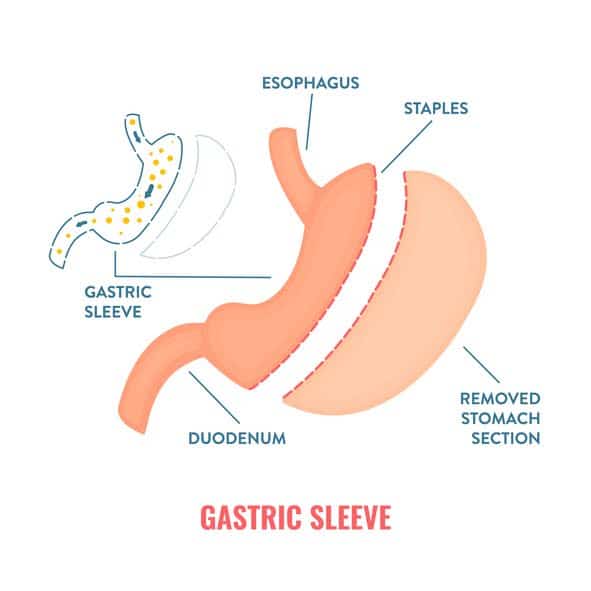

How Much Weight Will I Lose After Gastric Sleeve Surgery?
Gastric sleeve surgery, or sleeve gastrectomy, is a popular bariatric procedure aimed at helping individuals achieve significant weight loss. Understanding the potential weight loss after surgery is essential for setting realistic expectations. On average, patients can expect to lose about 60% to 70% of their excess body weight within the first 12 to 18 months following the procedure.
This calculator determines a weight loss goal that is 60% of your excess weight, using a BMI of 25 as the ideal benchmark.
However, it’s important to remember that weight loss is highly individual and can be influenced by several factors, including pre-surgery weight, lifestyle changes, dietary adherence, and physical activity levels post-surgery. Many patients report substantial improvements in comorbid conditions, such as type 2 diabetes and hypertension, as they experience weight loss. Ultimately, the journey of weight loss after gastric sleeve surgery is a combination of medical intervention and personal commitment, making it crucial to engage in a supportive aftercare plan for long-term success.
Factors Influencing Weight Loss in Gastric Sleeve Surgery
Several factors can significantly impact the amount of weight an individual loses after gastric sleeve surgery. One of the primary factors is the patient’s initial weight, as those starting at a higher body mass index (BMI) may see more substantial results. Additionally, adherence to dietary changes plays a crucial role; patients are advised to adopt a high-protein, low-carbohydrate diet to maximise weight loss. Regular physical activity is also essential; incorporating both cardiovascular and strength-training exercises can enhance fat loss and muscle retention, contributing to a more successful outcome.
Moreover, individual metabolic rates and genetics can vary greatly, affecting weight loss results. Patients with a strong support system and access to aftercare resources tend to achieve better long-term success. Regular follow-ups with healthcare providers can help monitor progress and make necessary adjustments to nutrition and exercise plans. Altogether, achieving desired weight loss goals hinges not only on the surgical procedure but also on the patient’s commitment to lifestyle changes and ongoing support.